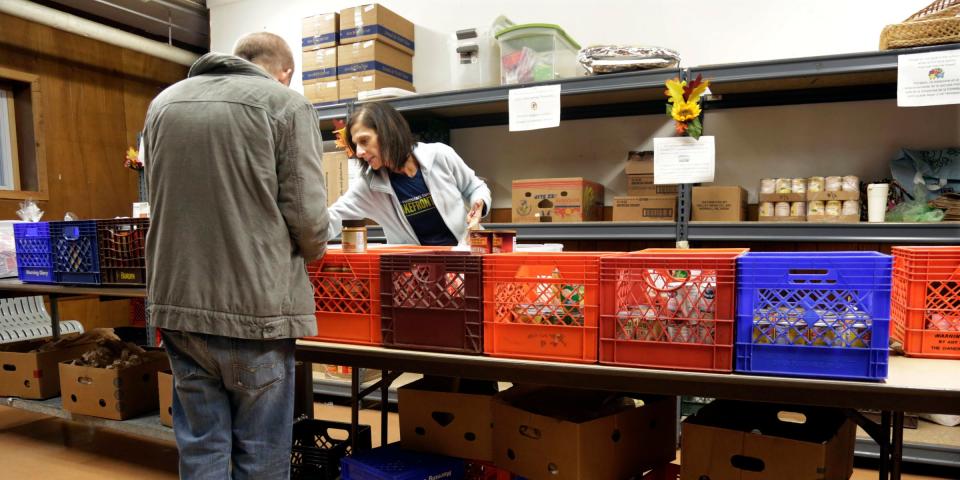4 out of 5 workers are worried inflation will cut into their earnings

AP
Anxiety over pay and economic security is widespread, according to a report by think tank the Royal Society of Arts.
Inflation is higher than wage growth, meaning a fall in real wages. Employment is no longer a guarantee of economic security, the report said.
Falling real wages comes at a time of Brexit uncertainty and concerns about automation, despite record levels of employment.
LONDON — Anxiety over future pay prospects and living standards is widespread throughout the UK, according to a new report by think tank the Royal Society of Arts (RSA).
Four out of five working people are worried that inflation will mean a drop in their real wages in the future, the RSA found. Despite record levels of employment, fears about inflation, against a backdrop of increasing economic inequality, Brexit uncertainty and fears over increasing automation means workers feel economically insecure, the report said.
"Having a job is no longer a guarantor of economic security: more than seven million people in working households live in poverty, wage growth lagged behind inflation for most of the last decade, and close to eight million people in the UK live with problem debt," Atif Shafique, a senior researcher at the RSA, told the Guardian.
"Ten years after the crash, and we need a step change. Community, place, identity and personal responsibility all have an important role to play," he said.
Between 2008 and 2014 inflation outstripped pay, causing real wages to fall. Although this was reversed in 2015 and 2016, last year saw a renewed fall in real wages following the Brexit referendum and drop in the value of the pound. Inflation, which was at 0.5% in June 2016, rose to 3.1% in November 2017. Meanwhile, wage growth was 2.4% in October 2017.
Since the 2008 financial crisis, employment has not been a guarantee of economic security, warned Matthew Taylor, chief executive of the RSA.
In September last year, the TUC found private sector employers were sticking to a 2% ceiling on nominal pay increases, in contrast to the 4% norm that had prevailed before 2008. Part of the problem, it said, was insecurity at work, meaning that workers are less willing to demand higher pay.
This year, the Institute for Fiscal Studies found the increase in the National Living Wage — which is set to rise from £7.20 per hour for the over 25s to £8.56 by 2020 — may inadvertently incentivise employers to automate jobs as they try to control labour costs.
The RSA's report is based on a survey of more than 2,000 adults.
NOW WATCH: Netflix is headed for a huge profit milestone in 2018
See Also:
Walmart is raising wages and issuing bonuses after tax reform
A terrible Christmas for retailers could be disastrous for the UK's economic growth
SEE ALSO: WORLD BANK: Global growth will peak this year and then decline

 Yahoo Finance
Yahoo Finance 
